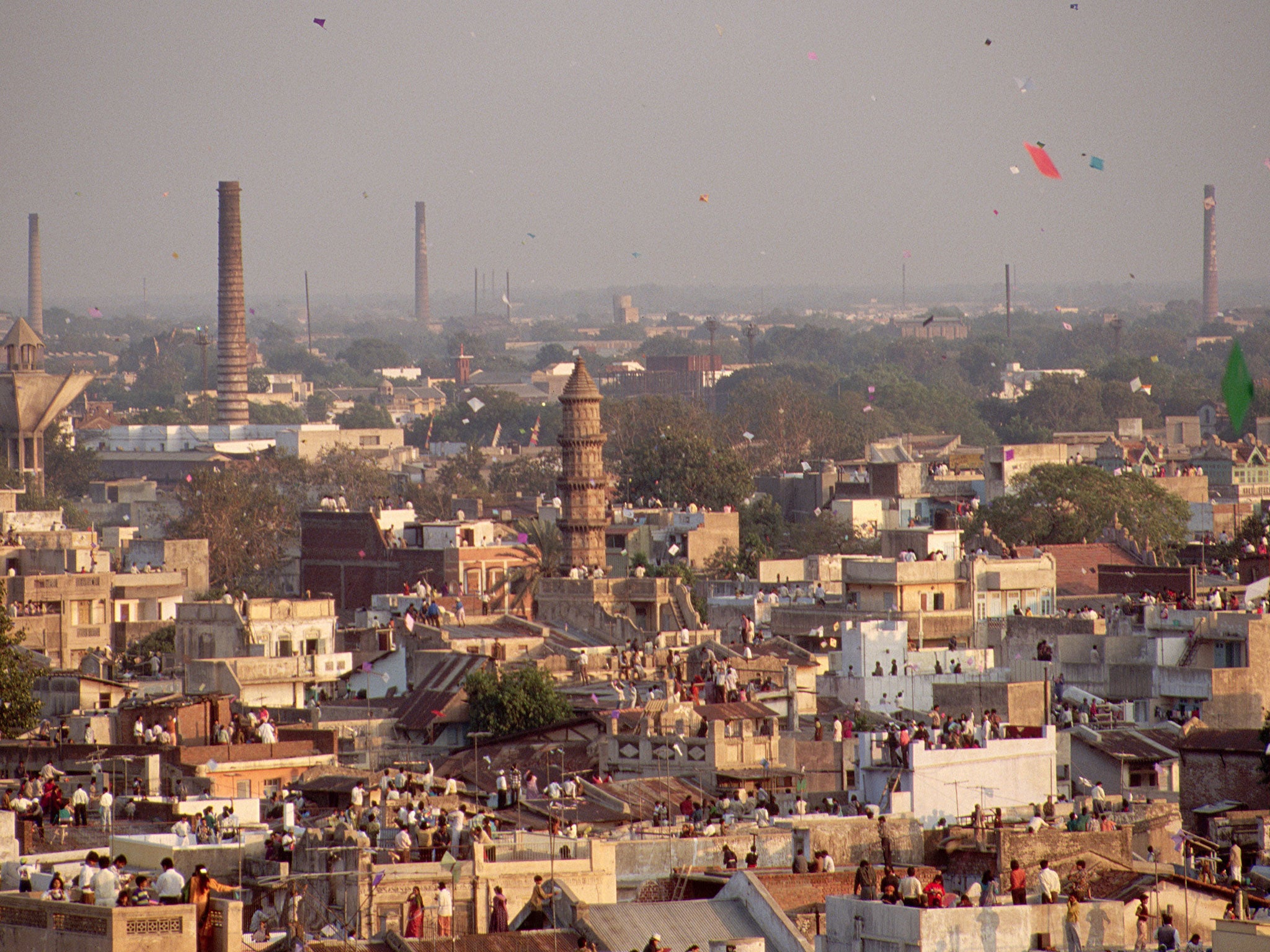Ahmedabad: A City in the World by Amrita Shah, book review: Riveting account of a key city
Shah's book is much more than the story of a city made by Indians

Your support helps us to tell the story
From reproductive rights to climate change to Big Tech, The Independent is on the ground when the story is developing. Whether it's investigating the financials of Elon Musk's pro-Trump PAC or producing our latest documentary, 'The A Word', which shines a light on the American women fighting for reproductive rights, we know how important it is to parse out the facts from the messaging.
At such a critical moment in US history, we need reporters on the ground. Your donation allows us to keep sending journalists to speak to both sides of the story.
The Independent is trusted by Americans across the entire political spectrum. And unlike many other quality news outlets, we choose not to lock Americans out of our reporting and analysis with paywalls. We believe quality journalism should be available to everyone, paid for by those who can afford it.
Your support makes all the difference.The focus on Indian cities have often borne out the truth of Nobel laureate Amartya Sen's insightful observation that when it comes to India the British give the impression that they have authored the country. So books on Indian cities concentrate on the four great cities that were either developed by the British, Bombay, Calcutta and Madras, or radically altered, Delhi.
For that reason alone Amrita Shah's biography of Ahmedabad would be welcome. This is a city that bears the imprint of various Indians starting with its founder, the Muslim ruler Ahmed Shah, who gives his name to the city. And of Gandhi, who had his first big Ashram here, on the banks of the Sabarmati, from where he set out on his historic walk to the sea in March 1930, a protest to mark the iniquity of British rule. Right down to the imprint of India's current Prime Minister, Narendra Modi, who made his mark on the Indian political scene as chief minister of Gujarat (Ahmedabad is the region's most important city and former capital).
But Shah's book is much more than the story of a city made by Indians and told by an Indian. What makes it exceptional is that Shah emerges both as a novelist and a historian as she narrates how the city has developed and changed. And like any novel there is a central character: Miraj, a Muslim.
Forced to flee his neighbourhood following the violence on Muslims unleased by Hindu mobs in 2002, which many believe was instigated, if not condoned, by Modi, then chief minister, Miraj agrees to accompany Shah back to his old haunts.
However, there is a problem. Miraj had given heavy hints that he wanted to go in a car but when Shah's car breaks down she arrives in an auto rickshaw to pick him up, thinking nothing of it (probably the most common mode of transport in the city and the one Shah always uses). But Miraj is horrified and it takes Shah some time to realise that this was not a trivial request, it is the anguish of the dispossessed.
For Miraj it was necessary to return in a car to "salvage some perceived loss of dignity", and Shah can only gain his trust when she quickly hires a car to take them on their journey back to his vanished past. The book ends with Miraj living on the outskirts of the city, whose name Bombay Hotel seeks to create the illusion that it has some of the grandeur of that more illustrious city on the west coast of India, when it is no more than a wasteland providing a home for the displaced Muslims of Ahmedabad.
Despite the fact that Miraj can never recover from the trauma of the 2002 violence, he has no desire to return to his home village in northern India. There Hindus and Muslims live amicably together, the village is pretty, the land is green and beautiful but: "It is boring there. We have become used to the pleasures of the city. Who would want to leave Ahmedabad?"
Miraj is only one of many characters Shah uses to paint a riveting picture of a city that for all its problems still attracts peoples in droves and is much more than a hick mill town, but has yet to become a grand metropolis, and may never do.
Join our commenting forum
Join thought-provoking conversations, follow other Independent readers and see their replies
Comments